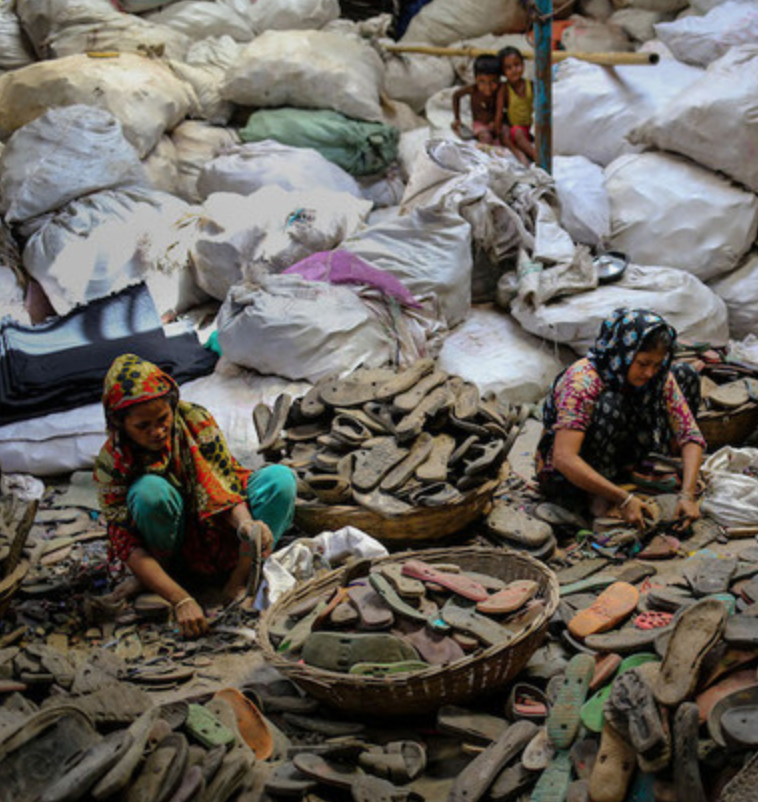
This is a “historic” decision. Ten years after the Rana Plaza tragedy – in 2013, more than 1,000 women textile workers died in the collapse of a subcontracting factory for fashion giants in Bangladesh – the European Union has just reached a major agreement leading to the creation of a European duty of vigilance. With this text, “we are paying tribute to all the victims of Rana Plaza”, said Lara Wolters, the MEP who is rapporteur for the project at the European Parliament, at a press conference.
In concrete terms, the EU has just created a single framework obliging major companies operating in Europe to take account of human and environmental rights throughout their value chain, including subcontractors and suppliers. The text “makes the EU the first economic power to equip itself with such a tool, and will help to raise the social and environmental profile of globalisation”, enthused Pascal Canfin, MEP and Chairman of the Environment Committee. “Whether it’s shoes made by children or workers in unsafe factories, (…) we’ve all heard about such practices. This new European law aims to put an end to them.”
A “legal revolution
The directive applies to all large companies with more than 500 employees and a worldwide net turnover of 150 million euros. For non-European companies, this will apply if they have a net turnover of 300 million euros generated in the EU, three years after the directive comes into force. Companies will thus be legally responsible for both human rights violations and environmental damage. The directive also requires companies to adopt a plan to ensure that their business model and strategy “are compatible with the Paris Agreement on climate change”. Failure to comply with the directive can result in financial penalties of up to 5% of the company’s net sales.
“This is a legal revolution, enabling victims to demand compensation before the courts. It’s a real victory that we’ve wrested from the lobbies”, enthused Manon Aubry, contacted by Novethic. However, the MEP, who took part in the negotiations for almost 20 hours, points to a flaw in the agreement. “There is still one very important shadow hanging over the picture, and that is the exclusion of the financial sector, at France’s request”, she regretted. The directive does not in fact apply to the financial sector, “but there will be a review clause for the possible future inclusion of this sector on the basis of a sufficient impact assessment”, says the text.
According to the Observatoire des multinationales, lobbying by the world’s largest asset management company, Blackrock, led Bercy to exclude the financial sector, as France wanted to make Paris an attractive capital for financial circles. “This is an incomprehensible exclusion, given that these services are covered by French legislation on duty of care, with BNP Paribas having been the subject of two legal actions on this basis. In the rest of the EU, this exclusion could allow financial players to continue to support projects and companies that are dangerous for the environment and human rights without being held to account”, denounced several NGOs in a joint press release, including Sherpa, Friends of the Earth and Reclaim Finance.
A common European approach
France was indeed a pioneer at global level when it adopted a duty of vigilance in 2017. A necessary text that has several flaws: no implementing decree, no obligation of result, a very weak framework for access to justice for victims, etc. Companies themselves are denouncing “considerable legal uncertainty”, such as La Poste, which was partially condemned for its duty of vigilance on 6 December.
The EU text is over 200 pages long. Above all, it makes it possible to “avoid fragmentation and scattering in the EU”, according to European Commissioner Didier Reynders, pointing to the “risk of having different approaches until 2027”. Germany and France, the only two countries to have currently adopted a duty of care, differ on the scope of application and the general approach. This provisional agreement between the Council of the EU, the Parliament and the Commission still has to be ratified before the next elections in June. Each Member State will then have to transpose the directive into national law.
Read more – Novethic
